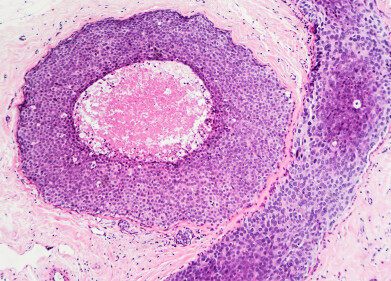Laboratory Products
What is Monkeypox?
Jan 13 2020
Following a trip to Nigeria, a British patient has been diagnosed with monkeypox, a rare double-stranded DNA virus that occurs mostly in tropical rainforest zones of Central and West Africa. The case was confirmed by Public Health England (PHE), with the government agency releasing a statement reading, "As a precautionary measure, PHE experts are working closely with NHS colleagues to implement rapid infection control procedures, including contacting people who might have been in close contact with the individual to provide information and health advice." It's not the first time monkeypox has been detected in the UK, with three other people diagnosed with the virus in 2018.
Fatalities of up to 10% reported by WHO
Similar to smallpox and chickenpox, monkeypox is a viral infection with symptoms including fever, headache, swollen lymph nodes, aching muscles, exhaustion and chills. It culminates in a rash that starts on the face and can often spread to other areas of the body. While most patients recover within a few weeks, in some cases monkeypox can be fatal. The World Health Organisation reports fatalities in up to 10% of patients during outbreaks, mostly within younger patients.
Low risk of human-to-human transmission
After falling ill, the patient was referred to the Guy’s and St Thomas’ NHS Foundation Trust, a specialist high consequence infectious disease centre in London. While the health authority has taken measures to ensure the virus doesn't spread, experts have also said the risk of an outbreak is low as monkeypox isn't easily transmitted between humans. This is because the human strain of monkeypox is a zoonotic disease that's largely transmitted from animals, usually primates and rodents, to humans. It's rarely transmitted between humans and unlike other highly infectious viruses that can become airborne, is only passed on via direct contact with lesions, respiratory droplets, body fluids and contaminated materials such as clothes, bandages and bedding.
"Monkeypox does not spread easily between people and the overall risk to the general public is very low," says Dr Meera Chand, a Consultant Microbiologist at PHE.
From developing vaccines for fatal viruses to developing treatments for degenerative diseases, science is at the forefront of modern medicine. For a closer look at the new Chromatrap® FFPE ChIP kit being used to extract and precipitate chromatin from complex formalin fixed paraffin embedded tissue from human and animal sources, don't miss 'Unlocking the archive - Chromatrap® ChIP from Formula Fixed Paraffin Embedded (FFPE) Tissue.'
Digital Edition
Lab Asia 31.6 Dec 2024
December 2024
Chromatography Articles - Sustainable chromatography: Embracing software for greener methods Mass Spectrometry & Spectroscopy Articles - Solving industry challenges for phosphorus containi...
View all digital editions
Events
Jan 22 2025 Tokyo, Japan
Jan 22 2025 Birmingham, UK
Jan 25 2025 San Diego, CA, USA
Jan 27 2025 Dubai, UAE
Jan 29 2025 Tokyo, Japan

.jpg)

















